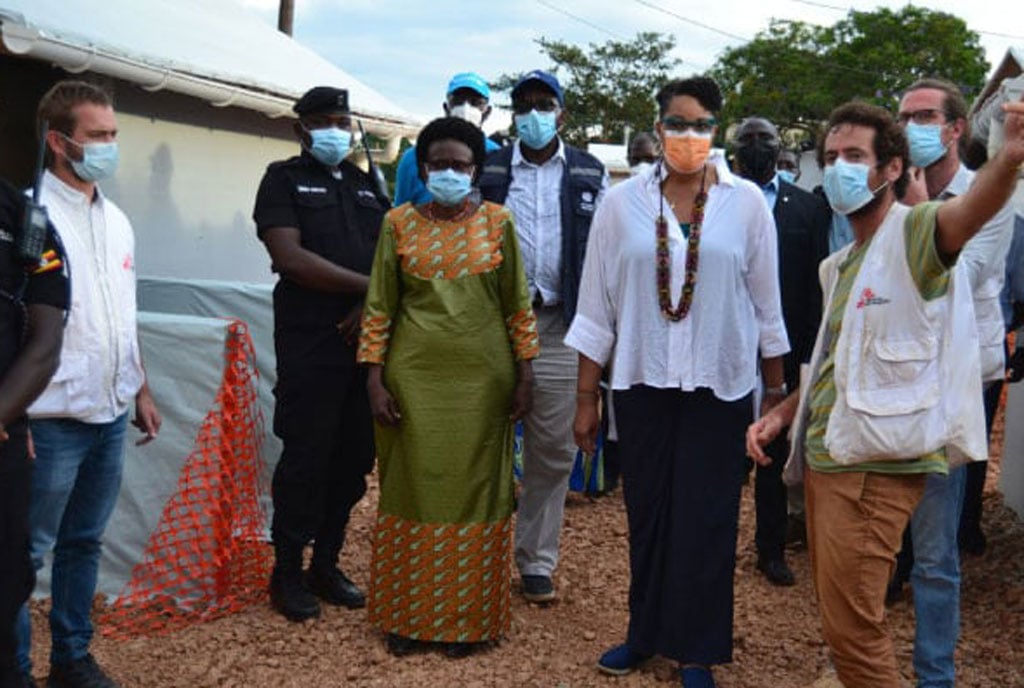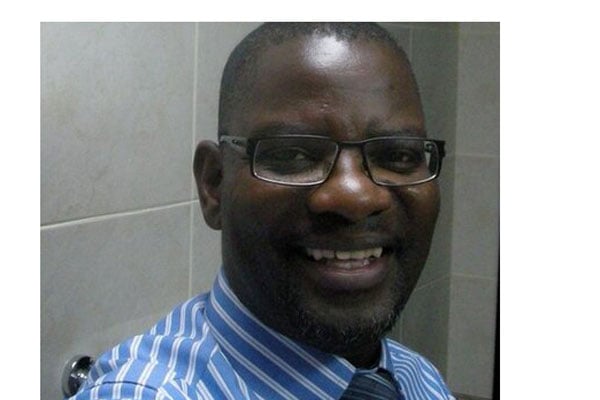Prime
Excitement as Ugandans race to free Ebola status

The Health minister, Dr Jane Ruth Aceng (left), and the US Ambassador in Uganda, Ms Natalie E. Brown, with other officials tour the Ebola treatment centre in Mubende Municipality in November last year. PHOTO/FILE
What you need to know:
- For a country to be declared free from an epidemic, WHO requires 42 consecutive days of zero cases.
There is excitement among Ugandans as the World Health Organisation prepares to declare Uganda free from Ebola tomorrow.
The declaration is a significant breakthrough for Ugandans, particularly residents of Mubende and Kassanda districts that faced the Ebola Sudan virus, which sent them into an abrupt 63 days’ lockdown to contain the spread of the disease.
The long-awaited declaration will be made if no new cases are reported in the country at that time.
For a country to be declared free from an epidemic, WHO requires 42 consecutive days of zero cases.
The declaration means that the Ministry of Health and WHO, among other partners, will mark 117 days since the disease was declared in the country on September 20 last year.
The Ministry of Health spokesperson, Mr Emmanuel Ainebyoona, confirmed to Daily Monitor that WHO and the government teams will be declaring Uganda Ebola free in Mubende tomorrow.
The WHO 79th situation report of December 21 last year puts the cumulative confirmed cases at 142 but declares zero new cases reported by that date.
The news, which comes at the backdrop of a robust campaign initiated by the government and other partners, brings into memory the lost lives, survivors, and the health teams that were involved.
The disease presented numerous challenges to the residents of Mubende and Kassanda.
Ms Rosemary Byabashaija, the Mubende Resident District Commissioner and chairperson of the Mubende Ebola taskforce, said her office was at the centre of the campaign to help enforce the health guidelines.
“It has not been an easy campaign but we thank God that Uganda will now be categorised as an Ebola-free country. Mubende was the epicentre of the disease and recorded the first confirmed case. We registered the highest number of casualties but also recorded the highest number of recoveries,” she said.
The district registered 64 cumulative confirmed cases, 38 recoveries and 29 deaths.
“We also had 19 probable cases that point to the fact that the virus could have been in the area at an earlier date and possibly accounts for the 19 probable cases,” the Ms Byabashaija said.
Mr Micheal Ntambi Muhereza, the district chairperson, said the lockdown and night curfew were a nightmare.
“We had to answer many questions as leaders owing to the fact that a bigger percentage of residents were deprived of their daily income when their businesses closed. Nobody could be blamed for this situation since the Ebola outbreak was like any other disaster. The people of Mubende cooperated and yielded to the guidelines,” he said.
Dr Pasker Apiyo, a consultant physician and team leader at the Mubende Ebola Treatment Unit, lauded the courage of all the health teams.
“My department has been in charge of case management. We thank God that we are looking at a country free from the Ebola disease. It was a hard experience but the teams endured all the challenges and served to the end,” she said.
The disease later spread to eight other districts and registered a case fatality ratio of 39 percent with zero active contacts under follow up.
The districts included Kagadi, Wakiso, Kampala, Masaka, Jinja, Bunyangabu and Kyegegwa.
Six health workers also died while 14 cases were confirmed among the health teams.
The Ebola Sudan virus outbreak precedes the earlier ones recorded in the country.
These are the outbreak in Gulu in 2000, Bundibugyo (2007), and Luweero (2011 and July 2012).





